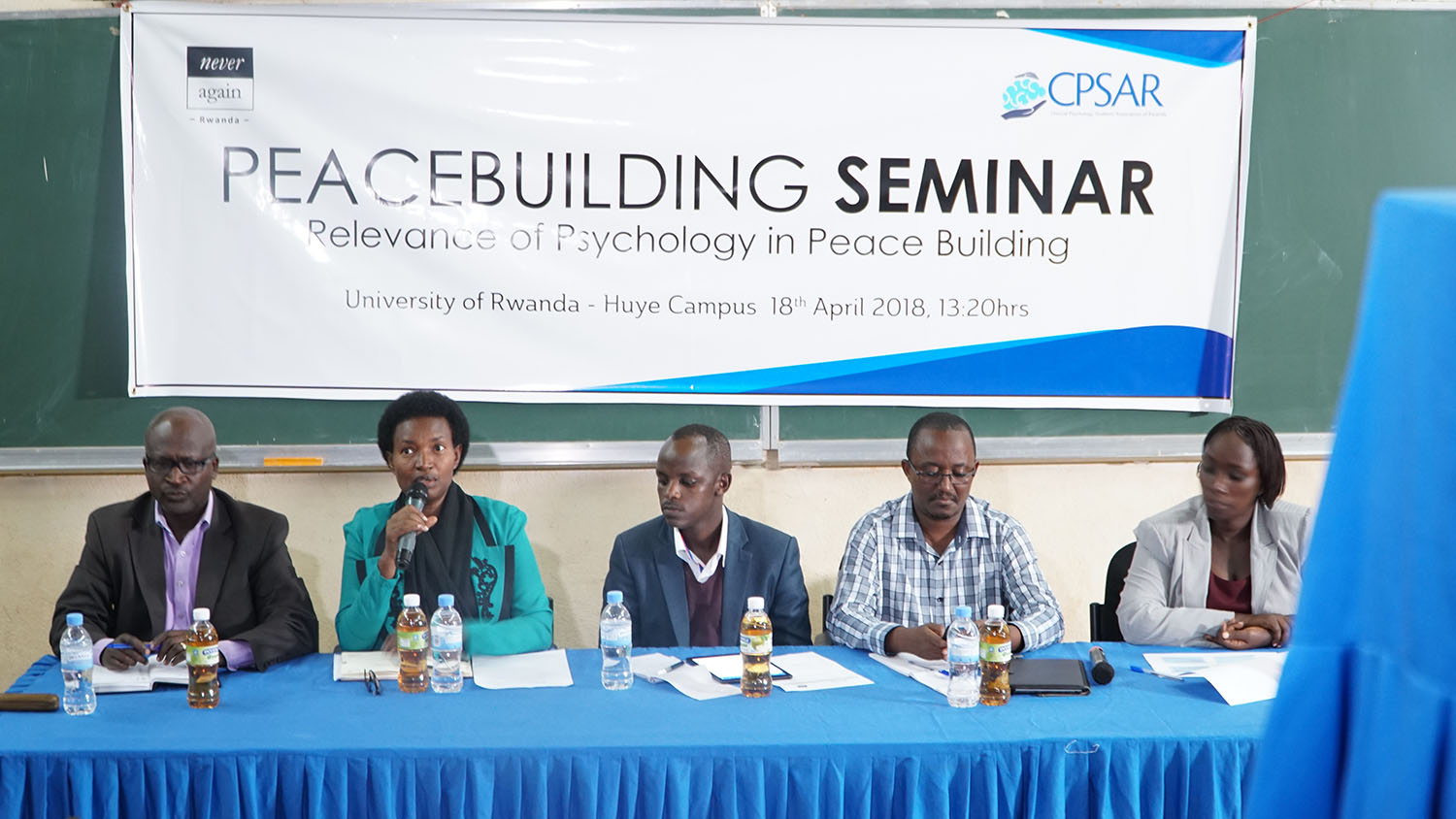When Never Again Rwanda was first formed 24 years ago, part of its goal was to create a space for all Rwandans regardless of origin or ethnicity to be able to discuss and share their experiences and wounds with one another in the hope that they would be able to foster an environment of understanding and mutual empathy. Since then, the goals that Never Again Rwanda strives towards have evolved somewhat, with the organisation now focussing more explicitly on psychology, mental health, and the study thereof. This approach has proven more useful when trying to work out more complicated or less obvious issues that people may have as a result of the 1994 Genocide against the Tutsi, such as inter-generational trauma or other societal dysfunctions.
It is for this reason that Never Again Rwanda decided to collaborate with the Clinical Psychology Students Association of Rwanda to organize a seminar under the theme “Relevance of Psychology in Peace Building” at the Huye Campus of the University of Rwanda on the 18th of April 2018. The CPSAR is a non-profit student-led association founded in 2002 that is focused on clarifying for the public commonly held misconceptions about mental health as well as helping to provide more help for those with mental illnesses in general. Both organisations saw an opportunity to raise awareness for issues surrounding mental health, including within the student body of the University of Rwanda, and so they began collaborating on the aforementioned seminar.
The overall objectives of the seminar were to raise awareness on the role of psychology in peacebuilding and in Rwandan social life, to demonstrate the role of emotionality and irrationality in the managing and carrying out of a conflict, to highlight areas where one can find psychological support and to teach youth about how to the interconnectivity of the human psyche fits into conflict management. During the seminar itself, there were several activities that took place, including a panel of experts, a youth panel as well as group presentations, discussions and reflections.
There were a large number of speakers also present at the seminar, each of whom gave illuminating and thoughtful speeches. One such speaker was NAR’s very own Executive Director Dr. Joseph Ryarasa Nkurunziza, who spoke about the need for youth to be able to make informed decisions, resist manipulation and think critically if they are to take the lead on peace-building efforts in the near future. The attendants also heard from Umulisa Rurangwa Nelly, the president of the Clinical Psychology Association in Rwanda, who noted that “we talk peace today because we lacked it one day” and that this was “the reason why we do our best to build and maintain it.” Professor Sezibera Vincent also spoke out on some issues, saying that it is important to engage youth in peace-building in order to fight against continued stereotypes, which could in turn lead to continued conflict. The words from these individuals and others were very effective in encouraging the youth to become more knowledgeable about mental health and its role in the peacebuilding process.


